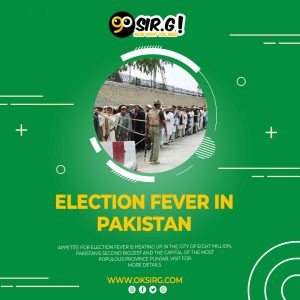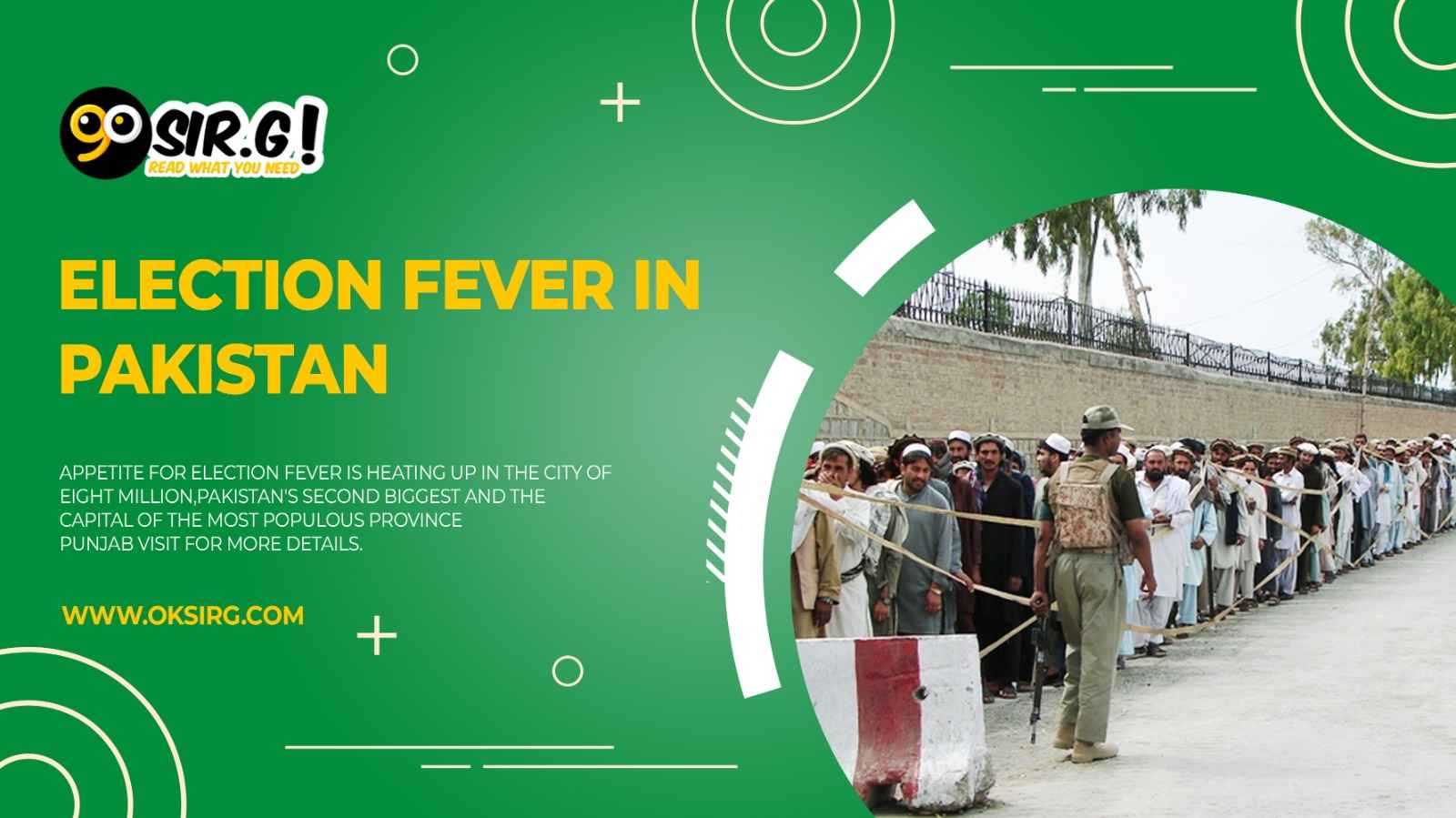Election fever in Pakistan fuels a political landscape in which parties campaign strategically and focus on voter engagement. Careful preparations, including electoral reform and infrastructure development, drive excitement and anticipation for the democratic process.
Election Fever In Pakistan Preparation, Campaigns, And Voter Engagement- Political Landscape:
The election fever in Pakistan brings excitement and anticipation as the political landscape prepares for the democratic process. This article looks at various aspects of election preparation, campaign strategies, and the importance of voter engagement in shaping the country’s political landscape.
Election preparation begins with implementing electoral reforms and developing sound policies. Furthermore, these measures ensure transparency, fairness, and accountability throughout the electoral process. Updating voter rolls, strengthening security measures, and setting campaign finance policies help ensure the elections run smoothly.
Establishing the necessary infrastructure and logistics is essential to facilitate the voting process. Moreover, these include locating polling stations in easily accessible locations, ensuring the availability of ballot papers, ballot boxes, and electronic voting machines (if applicable), and training polling staff to effectively manage voting procedures.
Campaigns: Shaping The Political Landscape:
Campaigns serve as a platform for the political landscape to convey their ideologies, policies, and visions to the electorate. Furthermore, the parties are developing comprehensive strategies that include public rallies, door-to-door campaigns, media campaigns, and social media awareness-raising. Moreover, these strategies have designs to gain voters’ attention and support, highlight the party’s strengths, and set it apart from the competition.
Successful campaigns also focus on educating and raising awareness among voters. Political parties strive to spread information about the importance of voting, the electoral process, and making informed decisions. Furthermore, they organize seminars, workshops, and social campaigns to cheer citizens to exercise their right to vote.
Voter Engagement: Empowering The Electorate:
Voter participation initiatives include voter registration activities to ensure maximum turnout. Efforts make to register eligible voters, particularly among underrepresented and marginalized groups. Mobile registration units, online registration portals, and community outreach programs help broaden the voter base and ensure inclusion. Voter engagement goes beyond registration. Moreover, civic education programs educate voters about their rights and responsibilities, the importance of democratic participation, and the role of elected officials. These programs enable citizens to make informed decisions and hold elected officials accountable.
Election Observation And Surveillance:
Election observation and surveillance are essential to promote transparency and build trust in the electoral process. Furthermore, independent organizations and international bodies monitor elections.

Moreover, it ensures respect for democratic principles and uncovers irregularities and abuses. Your presence helps maintain the integrity of the electoral process and increases voter confidence.
Active participation by voters has profound implications for the democratic process in Pakistan. It brings more representation, legitimacy, and accountability to governance. Engaged voters become active participants in shaping the political landscape, demanding policy change, and electing leaders who align with their interests and aspirations.
Election fever in Pakistan unleashes an avalanche of activity, ranging from careful preparation to strategic campaigning and strong voter engagement. Furthermore, the success of the democratic process depends on the detailed planning and implementation of these elements. Moreover, by prioritizing transparent elections, inclusive election campaigns, and active voter participation, Pakistan can foster a vibrant democracy that reflects the will and aspirations of its people.
FAQS( Frequently Asked Questions)!
What does “election fever” mean in the context of Pakistan?
A: “Election fever” is a term used to describe the heightened excitement and anticipation surrounding the political landscape in Pakistan during the election period. Election fever means an energetic atmosphere and increased political activity as parties and candidates prepare for the democratic process.
Q: How are preparations going for the elections in Pakistan?
A: Pakistan’s election preparations include various elements, including electoral and political reforms, to ensure transparency and accountability. These include building infrastructure and logistics, such as setting up polling stations, training staff, and updating electoral rolls to facilitate voting.





Leave feedback about this
You must be logged in to post a comment.